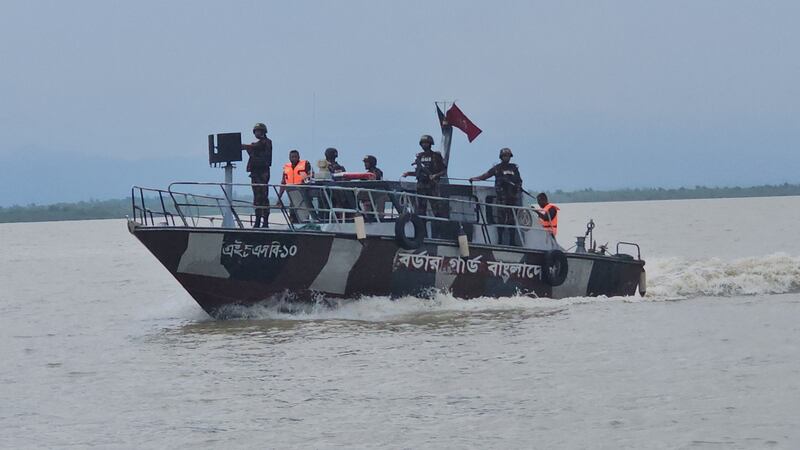Food aid to Rohingya refugees – which dipped to $8 monthly per person in 2023 – has been gradually restored and reached $12.50 in August, an official with the World Food Programme confirmed on Tuesday.
Meanwhile, refugee camps in southeastern Bangladesh are seeing their largest influx of Rohingya since 2017, with a camp leader estimating that thousands had arrived in recent weeks after fleeing violence in Rakhine state, across the border in Myanmar. The new arrivals are not receiving aid at this point.
“We have been getting additional allocations. Now we get U.S. $12.50 [1,468 taka] per month, beginning in August. But our need is not over as many of our relatives have arrived at the camps – we need to feed them because they have no allocations,” Mohammad Tayub, a resident of the Kutupalong refugee camp in Cox’s Bazar, told BenarNews.
“Our sufferings have not lessened. Should we leave them unfed?” he said.
Tareq Salahuddin, a communications officer with the World Food Programme (WFP) in Bangladesh, confirmed to BenarNews that the food allocation had been raised to $12.50 monthly per refugee.
In January, the WFP announced that it was increasing the monthly food provision for the Rohingya from $8 to $10 (939 to 1,174 taka) per person, which was previously cut twice from $12 (1,409 taka) because of funding shortages. At that time, the WFP said a shortfall in funding from donor nations meant it lacked $61 million (6.7 billion taka) in necessary funding.
Mohammed Mizanur Rahman, Bangladesh’s refugee relief and repatriation commissioner, told BenarNews that his office had worked with WFP to get the additional allocation. He was also aware about the new exodus from Myanmar.
About 740,000 Rohingya fled from Rakhine state in neighboring Myanmar following a bloody crackdown against them in August 2017. They joined other Rohingya who settled in camps in and around Cox’s Bazar district, bringing the total number of refugees in southeastern Bangladesh to about 1 million.
“We know more Rohingya are coming. But we do not have any figures on how many have come,” Mizanur Rahman said.

Lt. Col. Md. Mohiuddin, a Border Guard Bangladesh (BGB) commander, said his organization would block Rohingya from entering the country.
“We have thwarted many attempts to enter Bangladesh over the last several days. Several days ago, two boats carrying Rohingya [capsized and they] drowned in the Naf River,” he told BenarNews, adding, “at least 39 bodies were recovered from the river.”
The latest influx of Rohingya is tied to renewed fighting between the Burmese forces, which overthrew a democratic government in February 2021, and members of the rebel Arakan Army (AA).
“The Rohingya are used as human shields in the fighting between the Arakan Army and the government forces – every day, we get the news of the death of many Rohingya. At least 7,000 Rohingya have entered Bangladesh in the last seven days to flee fighting,” Mohammad Zobair, a Rohingya leader, told BenarNews on Tuesday.
“But unfortunately, many of the people have been robbed after entering the country,” he said.
Myanmar fighting
On Monday, residents of Myanmar's Rakhine state said that 13,000 Rohingya and hundreds of others had fled from Maungdaw township in recent days because of the fighting. The AA has evacuated the Rohingya since Aug. 7 when it seized two-thirds control of the township seat, according to a resident who requested anonymity over security concerns.
In Bangladesh, Mohammad Yasin, a resident of Ukhia camp, said relatives in Myanmar told him about a bombing in Maungdaw township on Tuesday morning. “Many Rohingya have died in today’s bombing. A serious situation prevails there,” Yasin told BenarNews, quoting his relative.
“The Arakan Army has finalized its preparation to occupy Maungdaw township. With this target in mind, they have been launching a series of attacks.”
BenarNews could not independently confirm Yasin’s claim about the Myanmar bombing.
Earlier this month, dozens of Rohingya were killed by weapons fire as they tried to cross the Naf River to enter Bangladesh and flee fighting between junta forces and the AA, several survivors of the attack told Radio Free Asia (RFA), a news organization affiliated with BenarNews.
